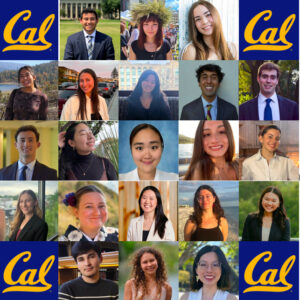Finding Scholarships
How do I find appropriate scholarships to apply for?
Identifying appropriate scholarships to apply for is one of the most important parts of a successful scholarship search. There are thousands and thousands of scholarships available to students through internet searches and scholarship guides, which can be overwhelming. For this reason, a well-defined scholarship search can be invaluable to students looking for some extra money to fund their education, research proposal, or community service project. The best and cheapest way to run a scholarship search is to find a reliable scholarship search engine that can help you filter out awards for which you simply don’t qualify. The goal is to find scholarships that are best suited to who you are, both as a student and as a person. Here is a list of free online databases to get you started.
As a student with limited amounts of time, you should be selective in choosing which scholarships to apply for, since most applications involve a significant amount of work. As noted above, there are many scholarships out there, and there are a probably a good number for which you could potentially apply. There are two questions you should ask yourself when choosing which scholarships are worth your time:
Who are the scholarship selectors looking for?
The answer to this question should always be, “ME!” Before applying for a scholarship, make sure that you are the type of person or student that the foundation is looking for. In essence, you ought to be the ideal candidate for the award. For any given scholarship, even the small ones, there will probably be a lot of students applying, and many of them will in fact be the ideal candidate. What does it mean to be the ideal candidate? First and foremost, your demographic and academic information should match their scholarship requirements. If they want liberal arts majors, an engineering student would be wise to apply elsewhere. Second, what you expect to do with the money should match what the foundation expects you to do with the money. If they want people to use their generous funds to create a community service project, they will not fund proposals that will only fund your undergraduate education. As a note to both of these suggestions, never misrepresent yourself on your application. Not only is lying unethical and illegal, but it will put you in a very uncomfortable position if you are ultimately a recipient.
Is the scholarship worth the time I will spend on the application process?
Many scholarships ask their applicants to run through a multitude of hoops before even considering the application. If you are applying for the Rhodes Scholarship, an internationally recognized scholarship for study in the United Kingdom, this is understandable. For a less prestigious and less valuable scholarship, you may want to consider whether it is worth your time.
Applications
Obtaining Applications
Most scholarships have websites that require you to register or create an account in order to download applications and accompanying documents. It is important to obtain the application as early as possible. Although you can sometimes access scholarship applications right up to the deadline, we recommend that you do so about three months before they are due. This gives you enough time to think about and complete the application and arrange for all other necessary documentation, such as letters of recommendation and transcripts. In some cases, foundations have request deadlines, after which you cannot apply.
Reading Through the Application
Once you download or access the application and all accompanying information online, the most important thing to do is to read through the instructions carefully. We recommend that you make a list of everything that is required to apply on a separate sheet of paper and use this as a checklist.
Gathering Materials
Any given scholarship application will contain different sections and will ask you to submit various kinds of supplemental information. It is extremely important that you understand what is required and that everything you submit is the best it can be. This section should help you accomplish that.
Scholarship Application
About 90 percent of scholarships require applicants to submit a cover form that includes basic biographical information and, sometimes, responses to short-answer questions. Completing this section is generally self-explanatory. Just remember to follow all instructions carefully.
Personal Statement
The personal statement is perhaps the most open-ended and least quantifiable element in the scholarship application. Not only does each individual student have their own writing style, but different scholarship applications also make specific requests of applicants in the personal statement, depending on the nature and purpose of the award. For example, a travel grant may ask you to place your personal experience in the context of the uses of your proposed travel and its relevance to your normal academic program. Despite this variation, there is some general advice on writing a strong personal statement.
The personal statement is one of the most critical factors in any application, as it is the applicant’s primary opportunity to present a nuanced and holistic narrative that introduces them as a person and as a student. The personal statement should not simply repeat information already provided in other parts of the application, such as your transcript(s) and resume. It should present a compelling picture of you as an individual that helps you stand out from the other applicants. After reading your personal statement, the scholarship selectors should think of you as the perfect recipient for their award.
Note: You should also use the personal statement as an opportunity to explain or contextualize any gaps in your academic record if there is no other appropriate place to do so in the application.
Transcripts
Not every scholarship will require a transcript, and many that do request applicants to send one do not give high importance to grades. Nevertheless, when an application requires a transcript, you should take their request seriously and provide the transcript well before the deadline. Note that there are two types of transcripts: unofficial and official. An unofficial transcript is a list of your coursework and grades similar to the printout available from Cal Central. Unofficial transcripts are normally acceptable only for campus-based scholarships and awards. Most, if not all, scholarship foundations will request an official transcript, which can also be ordered through Cal Central. You may request an official paper transcript, which includes the seal of the university and the signature of the Registrar, or order an electronic copy.
Remember that official transcripts will not include current course work and grades until approximately four weeks after the semester has ended, and degrees are not posted until approximately ten weeks after the semester has ended. Also, transcript requests will not be processed if you have outstanding financial obligations to the University.
For more information on transcripts, please visit the Office of the Registrar’s web site at http://registrar.berkeley.edu. The Office of the Registrar is the ONLY campus unit that issues official transcripts, and they do it according to their own timeline.
Resume/C.V.
Some scholarship applications provide dedicated space on the form to list activities and honors; others require a separate c.v. or resume. You should list your activities in reverse chronological order (including dates of involvement) using headings such as Community Service and Academic Honors. Briefly describe any activities that are not self-explanatory, and (where appropriate) describe the impact you made in each role. Your activities should represent your varied talents and passions outside the classroom to give selectors a sense of who you are and what you believe in. List all significant activities and honors, but be selective. The selectors are looking for sustained commitment (rather than two hours spent on a community clean-up). Keep in mind that anything in your application is fair game in the interviews, so be completely honest. If you list that you speak fluent French, for example, you’ll want to be able to converse with an interviewer in French. More information on resumes can be found on the Career Center website.
Completing the Process
Before submitting your application by email or through the foundation’s online portal, be sure to read through everything one last time and check that you have included everything they have requested.
The final step in applying for a scholarship is submitting the application and all other materials on time to the granting agency – or to the campus representative if there is a nomination process. Be sure to double-check the date and time (and time zone!) of the deadline.





